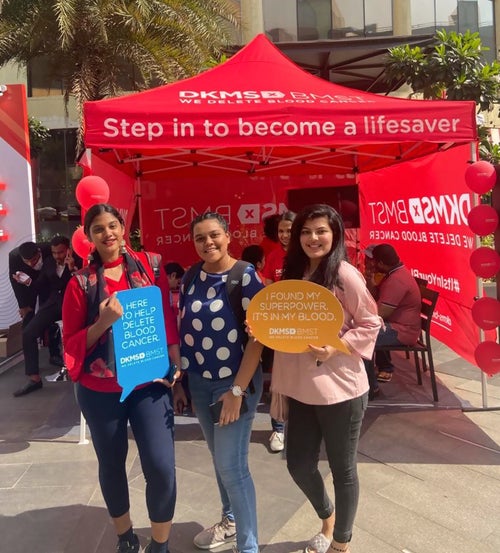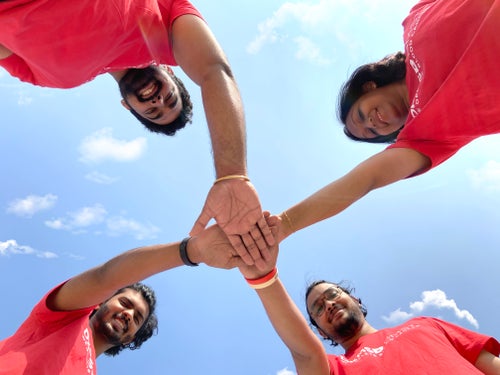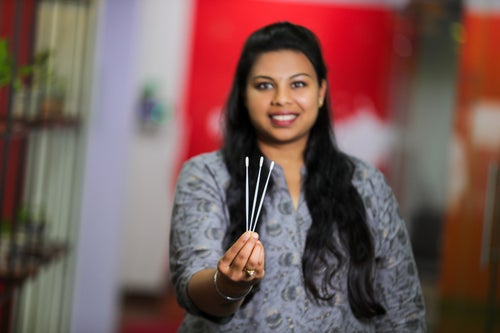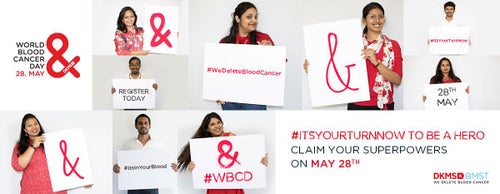Who can register as a potential blood stem cell donor?
Any adult between the ages of 18 and 50 and in general good health can become a donor. If you are already registered with any blood stem cell registry, it is not necessary to sign up again. If you suffer or have suffered from a chronic illness or any other severe illness or regularly take medication, please discuss your case with DKMS-BMST.
Key conditions that do not prevent you from becoming a blood stem cell donor:
An enlarged or underactive thyroid, Hashimoto’s thyroiditis (You must be stable and symptom-free, even if you are taking thyroid hormones or iodine. However, you cannot donate if you have Graves’ disease)
An enlarged thyroid gland is often caused by a lack of iodine (iodine deficiency goiter), but it can also be attributed to a lack of thyroid hormones – because a thyroid gland forms increasing amounts of tissue as it attempts to compensate for insufficient hormone production. If you do not have any symptoms and your thyroid medication is properly balanced, there is no reason you cannot become a blood stem cell donor.
If the hypothyroidism is caused by thyroid surgery, there is also nothing to prevent you from joining our register — unless the intervention was for Graves’ disease or thyroid carcinoma.
If the hypothyroidism is caused by an autoimmune disorder of the thyroid gland (Hashimoto’s thyroiditis), you may only be able to donate blood stem cells via a bone marrow collection from the pelvic bone. This point will be clarified if you are identified as a possible match for a patient.
If the hypothyroidism is caused by something other than a pre-existing thyroid condition, you can still sign up as a donor.
Morbus Hashimoto is one of the few autoimmune diseases that are not a major problem in blood stem cell donors. However, the thyroid gland must be properly regulated with medication. In addition, some people with the disorder may at times only be able to donate through a bone marrow collection from the pelvic bone. This point will be clarified as soon as you are identified as a possible match for a patient.
Graves’ disease is an autoimmune disorder of the thyroid gland that causes excessive thyroid production (hyperthyroidism). This can be problematic for both donor and recipient.
As a rule, high blood pressure is not an issue when it comes to donating stem cells — but it must be well regulated by diet or medication, and not have damaged the eyes, heart, or blood vessels. If your blood pressure is well-regulated, you can register as a stem cell donor.
Allergies (including food and medication allergies, and hay fever) are not a problem for potential donors — unless they have previously experienced severe allergic reactions (e.g. allergic shock, Quincke’s edema). Please advise us if you have had severe reactions, as it could affect your suitability as a donor.
As with many other conditions, what matters is the severity of depression or anxiety. The first thing to do is to find out whether the condition restricts you in any way, and check your general resilience — because donating blood stem cells is an additional mental strain for donors.
The question here is not so much whether a donor will reliably show up at the stem cell donation center but whether they can handle the situation afterward. After all, donating stem cells effectively means you gain a severely ill ‘blood relative’, and many of our donors are very concerned about the wellbeing of their recipient.
The use of psychotropic drugs also poses a particular problem, as they affect the blood count. Neuroleptics especially will prevent you from becoming a potential stem cell donor. Other conditions precluding registration as a stem cell donor include mental illnesses requiring treatment, such as severe depression, borderline syndrome, and any form of psychosis, schizoaffective disorder or bipolar/manic affective disorder.
Slight depression that requires only limited treatment is not an issue, as long as the donor feels fit enough to cope with everyday life. Anyone medicating with less problematic ingredients, such as Citalopram or Fluoxetine, can also still sign up as a stem cell donor.




